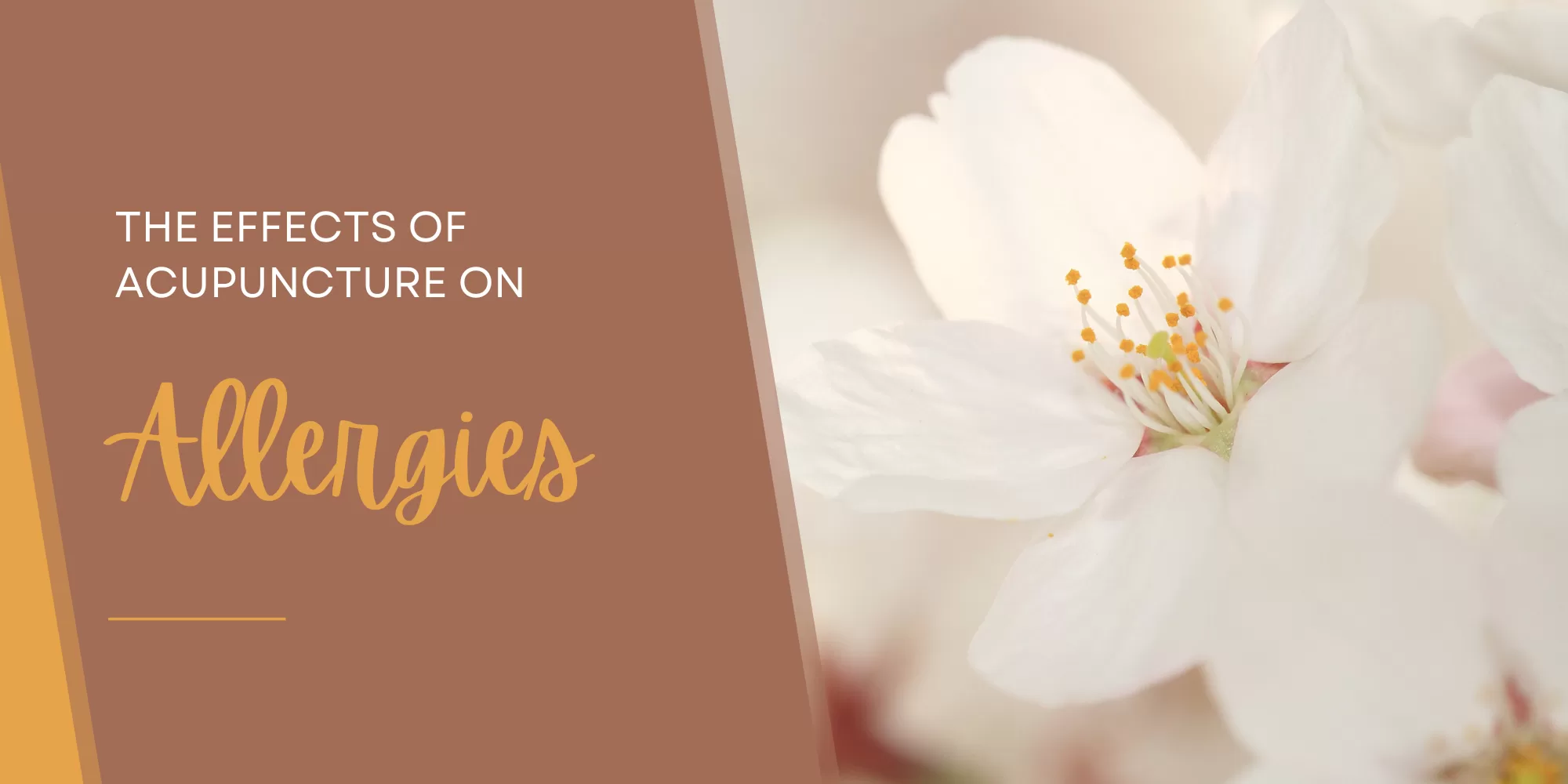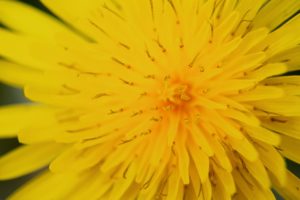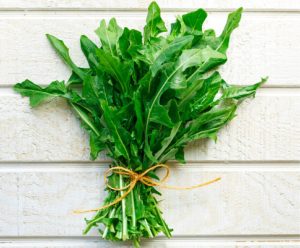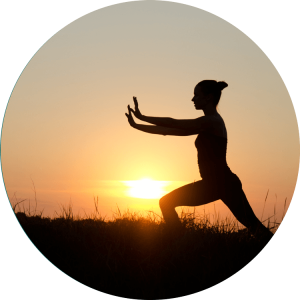- WE MOVED !!!
-
 Professional Acupuncture & Physical Therapy1118 East Superior Street
Professional Acupuncture & Physical Therapy1118 East Superior Street
Duluth, MN 55802(218) 724-3400 Clinic Hours
Mon8:00 am - 4:30 pmTue1:45 pm - 4:30 pmWed8:00 am - 4:30 pmThu8:00 am - 4:30 pmFriCLOSED

- Long Covid Booklet
Traditional Chinese Medicine
Five Reasons to Get Acupuncture for Allergies

Allergies, seasonal or otherwise, is one of the biggest health issues people deal with in the United States. And the numbers are rising every year. Part of this is because our agricultural practices have changed drastically in the past 40 years and our bodies are not accustomed to dealing with genetically modified foods or the excessive amounts of pesticides now being put in and on our food. We are also being over-medicated with antibiotics used in livestock we eat and that we are prescribed by our own doctors. This has created superbugs like MRSA that no longer responding to antibiotics. Our immune systems just can’t keep up. So every year, the number of people experiencing allergies is increasing.
But what if there were a way to combat seasonal allergies without the harsh side effects of medications and to actually get to the root of the problem instead of just masking the symptoms? There is a way to do this and it’s called acupuncture.
Acupuncture and Traditional Chinese Medicine offer a permanent solution to seasonal allergies and relief from everyday allergies with an all-natural approach that will ultimately save you money. Since TCM attacks allergies in a much different method than Western medicine, there is a good chance your allergies will cease to be a problem. Western medicine knows how allergies work and what happens to the body, but there is still no explanation as to why. But, TCM doesn’t need to know why because it looks at the body as a whole and uses an elemental system to determine where there are excesses and deficiencies in each person. So the TCM treatments are completely customized to each patient, thus making them much more effective than one-size-fits-all over-the-counter medications.
When using TCM to treat allergies, practitioners focus heavily on something called Wei Qi. Wei Qi is similar to the immune system in Western medicine. Wei Qi protects the body against foreign materials that can lead to inflammation and eventually allergies. People with lower immunity/Wei Qi are more susceptible to allergies and frequent colds. Acupuncture helps to boost the Wei Qi making it more difficult for allergens to attack the body. This is one of the best reasons to get regular acupuncture treatments if you suffer from allergies of any kind.
When energy becomes blocked due to inflammation caused by allergies, symptoms will flare back up. Acupuncture helps re-establish the flow of energy throughout the body. This will help to alleviate allergy symptoms. Many people who receive acupuncture treatments report they notice changes immediately. And over time, this will help to bring the body back into balance permanently.
Acupuncture has been shown to decrease heat associated with allergies. This can manifest as a sore throat, swollen sinuses and red eyes. There are specific acupressure points on the body that can almost instantaneously relieve these symptoms.
Many allergy sufferers also report pain in various areas of the body, especially the eyes and head. Relieving pain is what acupuncture is most frequently used for and it is also what most scientific studies focus on. The pain associated with allergies can prevent people from enjoying life. But regular acupuncture treatments can help resolve that and allow people to be more active and happy.
Probably the biggest reason to seek out acupuncture for the treatment of allergies is the amount of money a person will save. People spend over $18 billion per year on over-the-counter allergy medications, most of which only give minimal relief and have side effects like drowsiness and immune system suppression. TCM can provide relief without adverse side effects and for a lot less money overall.
The Effects of Acupuncture on Allergies
 Millions of people (as many as 50 million per year) suffer from recurring allergy symptoms. The causes of allergies are as many as the people who suffer from them. The severity of an individual’s reaction to a given allergy can vary greatly from one person to another and one allergic event to the next. Allergies range in severity from minor to mild, to irritating to severe, and some allergies can even be deadly.
Millions of people (as many as 50 million per year) suffer from recurring allergy symptoms. The causes of allergies are as many as the people who suffer from them. The severity of an individual’s reaction to a given allergy can vary greatly from one person to another and one allergic event to the next. Allergies range in severity from minor to mild, to irritating to severe, and some allergies can even be deadly.
The most common, most problematic allergic sensitivity is Hay Fever or allergic rhinitis. Many people miss work and other important activities on a seasonal basis when severe Hay Fever symptoms are not controlled.
For these reasons, many people seek relief from allergies, and fortunately there are many healthcare options available for those who are looking for better ways to treat their allergies. One of the most promising, and often overlooked treatments can be acupuncture and acupressure.
The Effect of Acupuncture on Allergies
While medication can reduce inflammation and suppress other symptoms of allergies, medications almost always come with undesirable side effects. Few medications can resolve the underlying problem that makes a given person allergic to a given substance. Conversely, acupuncture has been used for a number of years now by a wide range of practitioners to successfully relieve allergy symptoms.
Acupuncture is an ancient practice developed in mainland China. It has been used for a wide variety of conditions. Since becoming popular in the West, it has been frequently used as a complement to western medicinal options.. Acupuncture helps to correct functional imbalances and restore the flow of your body’s innate energies, thus returning you to a more natural state of well-being. And hopefully allergy-free!
Acupuncture, and Its Effect on Allergic Rhinitis
This study took aim at the most troublesome of all allergies, allergic rhinitis. It corroborates the reports by patients and practitioners that acupuncture is an effective way to treat allergies.
The study looked at 422 patients who tested positive for pollen allergies and presented with allergic nasal symptoms. The researchers randomly assigned participants to three different groups. One group was given 12 acupuncture treatments and took antihistamines as they normally would. The next group took 12 sham acupuncture treatments and antihistamines as they would normally do to combat symptoms. The third group took only antihistamines with no acupuncture treatments.
The research team found that those who received both real acupuncture and antihistamines reported the largest decrease in symptoms. They also reported using antihistamines less frequently than the other two groups.
While this study was limited to one allergy, it is promising that other, if not all chronic allergies, can be successfully treated through the regular use of acupuncture and/or acupressure.
If you or someone you know suffers from allergies, give us a call at (218) 724-3400, maybe acupuncture can help.
Source: https://annals.org/aim/fullarticle/1583575/effects-acupuncture-seasonal-allergic-rhinitis
Spring Cleansing and Clearing
 Springtime has a natural feeling of rejuvenation and rebirth. The days get visibly longer, little green buds start to appear on the trees and hibernating animals come out of their winter slumber. For us, as humans, the lengthening days bring with them a natural urge to shed winter layers and move into new beginnings. Cleansing, either by eliminating things from your diet, introducing new things or clearing our spaces of unnecessary clutter, can be a supportive way to move into spring.
Springtime has a natural feeling of rejuvenation and rebirth. The days get visibly longer, little green buds start to appear on the trees and hibernating animals come out of their winter slumber. For us, as humans, the lengthening days bring with them a natural urge to shed winter layers and move into new beginnings. Cleansing, either by eliminating things from your diet, introducing new things or clearing our spaces of unnecessary clutter, can be a supportive way to move into spring.
Cleansing by eliminating certain parts of your diet can be a great way to rid the body of any toxins that may have built up over the winter months, healing and resetting our bodies for the new season. Cleansing can look very differently depending on what your goals are, but the idea is to spend a chunk of time consuming a “cleaner” diet, meaning more whole foods, like fruits, vegetables, whole grains and nuts.
The natural availability of more fruits and vegetables during the spring presents the perfect opportunity to cleanse by only consuming raw fruits and vegetables or fruit and vegetable juices. This might feel dramatic. Cleansing can also mean eliminating just one part of your diet for a week or 10 days, which could be sugar, caffeine, alcohol, processed foods, etc. There is a spectrum of cleansing, but based on what your needs are this spring, practicing some sort of elimination diet can be incredibly rejuvenating and healing.
Incorporating a cleanse into your spring could also be introducing certain elements into your diet to support healthy digestive and immune system function. As mentioned before, consuming a diet based around only whole foods is very healing for the body, and spring is a great time to add more of those elements into your diet simply because more fruits and vegetables are in season once the weather improves. Incorporating vitamins or supplements into your diet can also support your overall health and have a rejuvenating effect. Adding local honey into your diet can also be a great way to boost your immune system and fight allergic reactions, because it is made from local flower pollens.
 Dandelions, which pop up in huge numbers during spring, can also be incorporated into a springtime cleanse. According to Traditional Chinese Medicine (TCM), spring is the time of year to attend to the liver and gallbladder, and dandelion is very cleansing and strengthening for both organs. The dandelion greens can be used in a salad or tea and are very nourishing.
Dandelions, which pop up in huge numbers during spring, can also be incorporated into a springtime cleanse. According to Traditional Chinese Medicine (TCM), spring is the time of year to attend to the liver and gallbladder, and dandelion is very cleansing and strengthening for both organs. The dandelion greens can be used in a salad or tea and are very nourishing.
 In conjunction with dietary cleansing, spring is a time to incorporate more regular exercise and movement into your life. As the weather improves and it’s easier to get outside, our bodies come out of a type of hibernation themselves and crave more movement each day. Consider taking your bike to work instead of driving your car if that’s possible in your city, or incorporate movement into your day in other ways. Take walks after dinner or during your lunch break, up the intensity of your workouts or stretch in the mornings or evenings to facilitate more movement throughout your day. Body work, such as acupuncture or massage, can also be very beneficial and cleansing practices this time of year. Both acupuncture and massage will support your other cleansing efforts as well as your muscles and tendons for healthier exercise and physical activity.
In conjunction with dietary cleansing, spring is a time to incorporate more regular exercise and movement into your life. As the weather improves and it’s easier to get outside, our bodies come out of a type of hibernation themselves and crave more movement each day. Consider taking your bike to work instead of driving your car if that’s possible in your city, or incorporate movement into your day in other ways. Take walks after dinner or during your lunch break, up the intensity of your workouts or stretch in the mornings or evenings to facilitate more movement throughout your day. Body work, such as acupuncture or massage, can also be very beneficial and cleansing practices this time of year. Both acupuncture and massage will support your other cleansing efforts as well as your muscles and tendons for healthier exercise and physical activity.
Lastly, spring cleansing can extend beyond your physical body and into the spaces you inhabit. Taking some time this spring to clear out clutter from your home can be a great way to enter the new season feeling lighter and refreshed. Creating a clean, tidy space in your bedroom can be especially helpful, because it creates a restful atmosphere that invites relaxation and sleep. One simple way to incorporate more tidiness is to clear off any clutter from your bedside table. It is also a good time of year to go through your wardrobe and get rid of or donate anything you no longer wear. Creating a peaceful bedroom will support the rest you need to tackle any changes or opportunities that may present themselves this spring.
Visit us at our new location at 1118 East Superior Street in Duluth, MN to see how Heidi can assist you with spring cleansing. Call (218) 724-3400 to make an appointment.
Embrace a calmer you today!
Schedule your appointment with Heidi today!
Natural Stress and Anxiety Relief
Home/Self-Care Remedies
 Embark on a journey through the wisdom of Traditional Chinese Medicine (TCM), where age-old practices seamlessly unite with modern wellness approaches. This article unveils a holistic toolkit featuring acupressure points, healing recipes, herbal remedies, breathing techniques, and yoga poses, offering a comprehensive strategy to combat stress and anxiety. Bridging the gap between ancient wisdom and contemporary well-being, this guide empowers individuals to navigate the complexities of modern life with balance and resilience.
Embark on a journey through the wisdom of Traditional Chinese Medicine (TCM), where age-old practices seamlessly unite with modern wellness approaches. This article unveils a holistic toolkit featuring acupressure points, healing recipes, herbal remedies, breathing techniques, and yoga poses, offering a comprehensive strategy to combat stress and anxiety. Bridging the gap between ancient wisdom and contemporary well-being, this guide empowers individuals to navigate the complexities of modern life with balance and resilience.
Acupressure Points
Yin Tang: Located between the eyebrows, often referred to as the “Third Eye.” Gently press or massage this point to calm the mind and relieve anxiety.
Heart 7 (HT7): Found on the wrist, on the crease line where the hand meets the arm, towards the little finger side. Stimulating this point can help alleviate stress and insomnia.
Pericardium 6 (PC6): Located three finger breadths below the wrist on the inner forearm in between the two tendons. Useful for reducing nausea and anxiety.
Healing Recipes
Chamomile Tea: Known for its calming properties, chamomile tea can help reduce anxiety and improve sleep.
Turmeric Milk: Mix turmeric powder in warm milk. Turmeric contains curcumin, which has been shown to have stress-reducing properties.
Green Smoothie: Blend spinach, a banana, yogurt, and a bit of honey. Spinach contains magnesium, which can help regulate cortisol levels.
Herbal Recommendations
Lavender: Known for its calming effect, can be used in teas, essential oils, or sachets.
Ashwagandha: An adaptogenic herb that helps the body manage stress. It can be taken as a supplement or used in teas.
Lemon Balm: Often used in tea, it can help reduce anxiety and promote sleep.
Breathing Techniques
Diaphragmatic Breathing: Focus on deep breathing into the diaphragm rather than shallow chest breathing to promote relaxation.
4-7-8 Breathing: Inhale for 4 seconds, hold the breath for 7 seconds, and exhale for 8 seconds. This technique is useful for reducing anxiety.
Alternate Nostril Breathing: This involves inhaling through one nostril while closing the other and then alternating. It’s known to bring balance and calm the mind.
Yoga Poses
Child’s Pose (Balasana): This pose helps to release tension in the back, shoulders, and chest and is known for its calming effects on the mind.
Corpse Pose (Savasana): Ideal for deep relaxation and stress relief.
Cat-Cow Pose (Marjaryasana-Bitilasana): This flowing movement helps relieve stress and massages the spine.
Combination Approaches
- Begin your morning with diaphragmatic breathing to set a calm tone for the day.
- Incorporate a brief yoga session in the afternoon, focusing on poses like Child’s Pose and Cat-Cow Pose.
- In the evening, enjoy a cup of chamomile tea or turmeric milk while practicing 4-7-8 breathing or alternate nostril breathing.
- Before bed, apply gentle pressure to acupressure points like Yin Tang and HT7 to promote restful sleep.
These approaches provide a comprehensive method to manage stress and anxiety, combining traditional practices with modern wellness techniques. It is crucial to note that while these methods can be beneficial for many, individual responses may vary.
